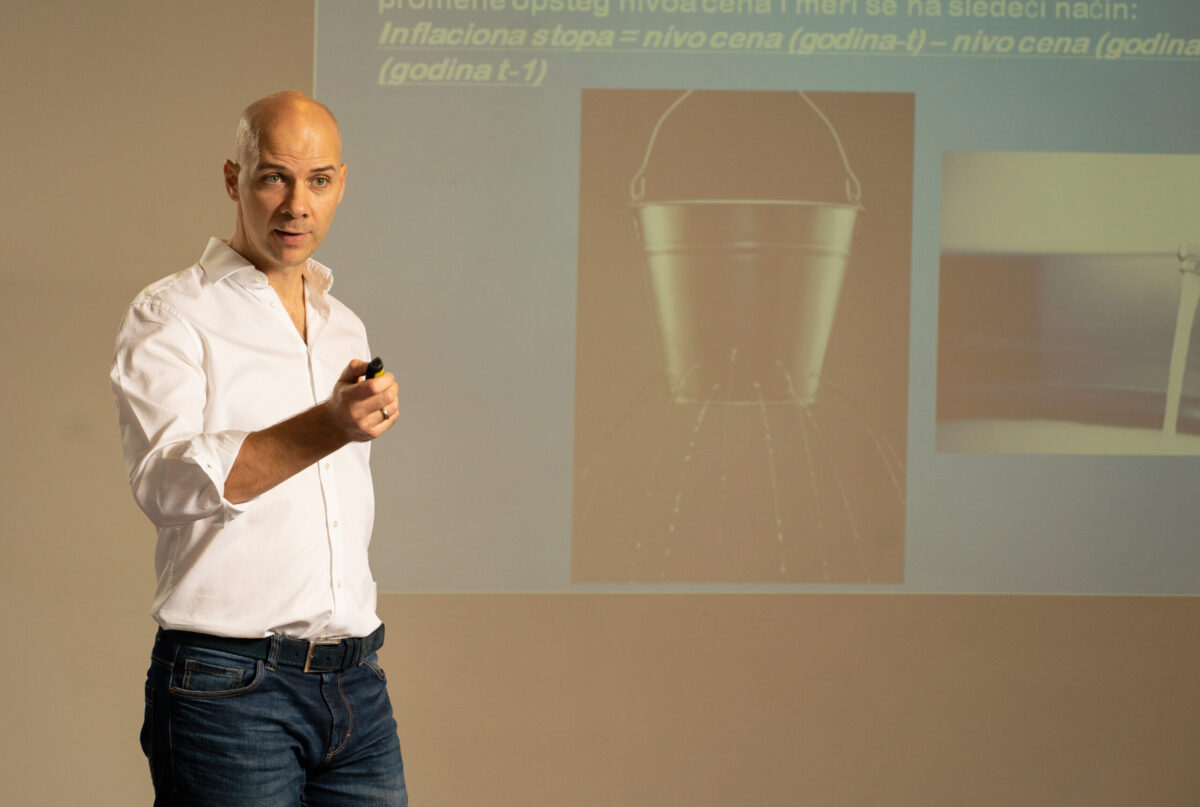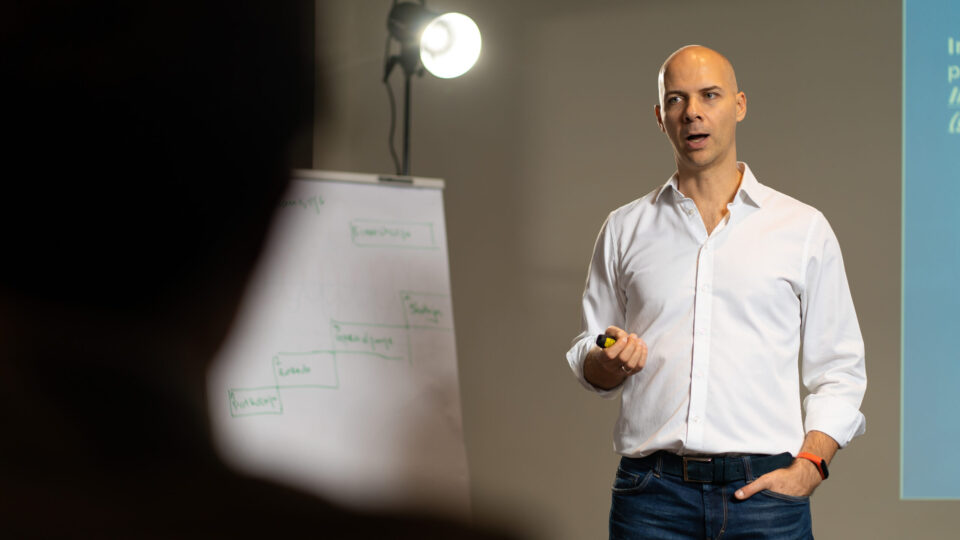The world will change drastically in the next five years, but it won’t be terrible, and there won’t be hungry people
 Many experts claim that Europe has been in an economic crisis for years. We know what it’s like in Serbia, and we increasingly hear worrying stories from the EU. Do you think so too?
Many experts claim that Europe has been in an economic crisis for years. We know what it’s like in Serbia, and we increasingly hear worrying stories from the EU. Do you think so too?
The crisis is a state of mind. The word “crisis” has a different meaning in the EU than in these regions. There, a person who loses their job looks at the calendar to see when they will become homeless. In contrast, here, people had survival exercises in the ’90s and are more resilient to economic challenges. To remind you, people in these areas had salaries of 10 marks, which would become 5 marks by the time they reached the store, and would disappear if there was nothing to buy, which was often the case. Fuel was sold by the liter, and from two oranges, 10 liters of juice were made. With such life experiences, little can be called a crisis.
On the other hand, the concept of forced consumerism, driven by financial capitalism to produce as little as possible while earning as much as possible, has pushed the West into questioning the sustainability of such a system. Additionally, new technologies are replacing workers, causing a deep but invisible disruption of the balance in old capitalist systems – first, the consumer base that excessively consumes overproduced goods is decreasing, and second, the base of those who will pay taxes and finance the state is decreasing. Many economic models are challenged; the world will change drastically in the next five years, but it won’t be terrible, and there won’t be hungry people. This time, we will watch all these changes from the stands.
Is the economy in crisis, or has it, in some strange way, only affected ordinary citizens?
The economy consists of players who are always in a state of better and more efficient business practices. They always operate from the perspective that the existing can be improved. And for them, there is not much concern. On the other hand, ordinary citizens are, it could be said, the damaged party because they bear the brunt of the changes. Inflation is precisely the mechanism that transfers money from the citizens to the economy. All price increases result in the economy having more and the citizens having less.
New technologies are replacing workers, causing a deep but invisible disruption of the balance in old capitalist systems
The labor market here is young and underdeveloped. Not in terms of the mechanisms that operate within it, but rather in terms of the attitudes of workers who do not trade their skills and who wait for the employer to value them. An employer, in a constant race to lower production costs, is more likely to replace a worker than to increase wages. Thus, in a tide of rising prices, you have a situation where workers are tied to the bottom and do not keep up with price increases, eventually starting to drown. They realize they have less and less even though they haven’t changed their lifestyle. Only when we adopt the mindset that we sell our work services as goods and that no one else will value them if we don’t, will the system balance, and all challenges will be distributed between the economy and the citizens.
 Our people are proverbially enterprising, and we have many examples of successful entrepreneurship throughout Serbia. In some smaller communities, entrepreneurship is even the leading economic sector. So why doesn’t the state support domestic entrepreneurs, but instead help already overly wealthy foreign investors?
Our people are proverbially enterprising, and we have many examples of successful entrepreneurship throughout Serbia. In some smaller communities, entrepreneurship is even the leading economic sector. So why doesn’t the state support domestic entrepreneurs, but instead help already overly wealthy foreign investors?
Judging by the dominant activities of the state, their focus is on employment – quantity. Therefore, everything concerning the already employed is in the background. This policy creates jobs that are the focus of the chosen policy.
Are we living in some form of hybrid colonialism? Is Serbia unique in its subordinate position to powerful forces, or is this also the case with some other countries in the world?
Today, more than ever, we see the inertia of Western financial capitalism, which has a global influence. This idea lacks perspective, and this has become obvious. A system that depends on “more” and does not have a defined “enough” will inevitably collide with the limitations of nature. An ordinary person cannot drive three cars, talk on two phones, or eat a kilogram of ice cream a day, and that is the condition for the system’s earnings and existence. All established global mechanisms possess all the power, influence, and force that allow them to implement this unnatural intention without the consent of those who lack the power to change it.
Nothing new in the order of civilization, and the shift of global ideas is a natural consequence of this state.
We recently celebrated Labor Day, but it seems that the day is spent roasting a pig in the forest, instead of protesting and demanding greater labor rights. Is there awareness among citizens about the working class today, and why is there no greater fight for workers’ rights?
The social order has changed; we live in capitalism with memories of socialism broadcasted in the news. Labor rights have been replaced by workers’ obligations. There is no one to lead the fight because we have transitioned from a society of collective interest to a society of individual interest with elements of greed. In this transition, we have retained the behavior of good people, which does not help us but rather allows employers to extract more from workers while paying less. The new generations have managed. The older ones will either understand that they must first value themselves for others to value them, or they will depend on the goodwill of the employer and the system.

What do you think about the announcements to raise the retirement age to 70 or even 75 years? Will we have a situation where the average worker won’t live to see their deserved pension, given that the life expectancy in Serbia is shorter than the proposed retirement age?
Economic calculations are forcing states to extend the retirement age, but the reward at the end of that working period is no longer as attractive. The state pension as a product has lost the quality it once had. It used to provide basic subsistence and comfortable retirement days. Today, it only covers part of subsistence. If you do not secure yourself in time, the system will not provide you with any comfort, just bare existence. You may be angry about this fact, but you cannot change it. Think ahead, do not spend everything, invest. Investing is a young discipline in these regions. Many crusaders have passed through Serbian mattresses, and for a good reason, it is locked up. But under the influence of inflation, it will lose its practical value. You have to invest. Do not rely on others. Personal finances are a game with yourself; there are no other players.
Many economic models are challenged
As a successful entrepreneur, what advice would you give an ordinary citizen of Serbia on how to survive a month with an average salary in Serbia? Is it even a realistic indicator of purchasing power, and does it mean anything to the citizens that it is increasing?
In financial management, there are only two sides. You can either spend less or earn more. Balancing these two sides is necessary for a peaceful life. The new era has brought us new choices. So the problem is not necessarily a lack of money but also an excess of desires. The previous egalitarianism left deep traces. Money in these regions is both desired and despised. Citizens do not wish to own a Mercedes but resent their neighbors for having one. They would be happier if the neighbor didn’t have it rather than them getting one. These are emotions from the previous system that cared for society differently. Modern states are corporatized with business models. In them, there are no reports on emotions, only Excel files with numbers.
Managing finances is desirable. No one will do it for you. Financial responsibility is non-transferable. First, it is necessary to step on the financial scale, draw a line, and calculate how much you have and how much you don’t. This process will pose difficult questions. Am I living a life I can afford? Should I reduce expenses and tighten my belt, or should I earn more? How can I better monetize my work? What am I buying, and what is being sold to me?
Once you answer these difficult questions, decisions become easier, priorities clearer, and “I must” turns into “I want.”